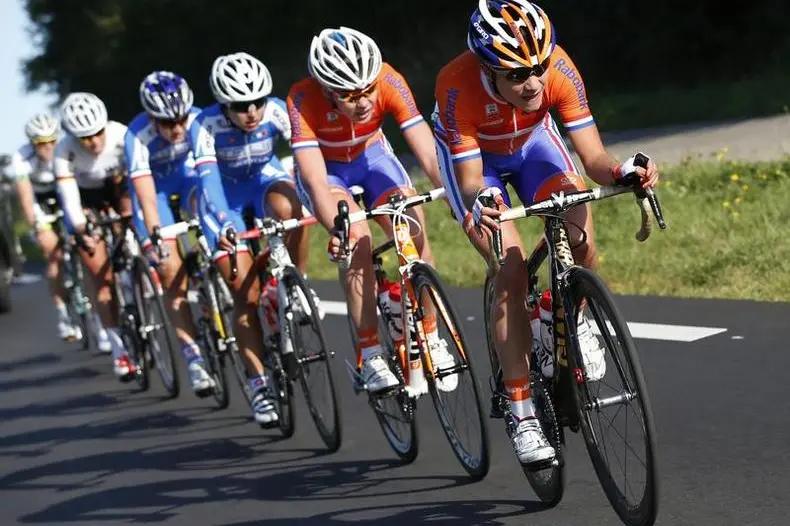PHOTO
Saturday, Feb 11, 2017
Beirut: Inspired by the Vélib in Paris and the Citi Bikes in New York — along with similar systems in other world capitals and main urban centres — former Prime Minister Najib Mikati, a major investor, financed the creation of “Bike-4-All” in Beirut, with a parallel effort in Byblos (Jbeil), Lebanon’s urban crown jewel.
Bike-4-All is a dream come true for Jawad Sbeity who created a private company, Beirut by Bike in 1997, and who regularly organises events around the bicycle and, who, in addition to Mikati, is still looking for investors to expand his bicycle plans for Lebanon.
His idea is rather simple: anyone can rent a bicycle for 5,000 LL (US$3.32; Dh12.19) per hour at one station and return it at another.
The first test station with 5 bicycles became operational on Weygand Street on January 12, near the five-star Hotel Le Gray, right across from the majestic Beirut Municipality building.
Two other stations followed along the Corniche seafront within a week, although the plan is to create 25 such stations throughout the capital.
When fully operational by May 2017, he hopes to have 5,000 bicycles, though Sbeity needed additional sponsors. In Jbeil, 100 bicycles were installed at 6 stations courtesy of IBL Bank, and are already fully operational. The founder’s dream is to erect similar outlets in Tyre (Sour), Sidon (Saida) and Tripoli.
While the idea is great in theory, due to the horrendous traffic gridlock of Beirut, critics say it is not practical as the capital does not have bike lanes on its highly congested streets.
Creating dedicated bike-lanes is a priority, which requires coordination with various municipalities, and which is where the first hurdles arise.
Sbeity told local newspapers a few days ago that his two decades-long efforts to encourage municipalities to alleviate traffic congestion by helping his projects came to naught.
“No one wanted to take the risk of setting up such a self-service bicycle project,” he said, adding that “municipalities have other priorities, including collecting garbage, attending to failing sewer systems, addressing significant health shortcomings,” all of which means that fixing urban traffic was not high on the priorities list.
Determined to make changes, however, the energetic entrepreneur is now pleading with the Beirut Municipality to let him, in other words, the private sector, to address the issue.
Sbeity asked the Governor of Beirut, Ziad Chbib, and the president of the municipal council, Jamal Itani, to allow him to paint and mark the ground to create bike paths.
“We just want to get their permission and we’ll do the rest,” he said.
For now, the main concern is the safety of potential cyclists, particularly tourists who might be interested in riding throughout the capital, but who may not be aware of risks with largely undisciplined car drives.
In fact, driving in Lebanon requires nerves of steel, impeccable 360 degree vision, and kamikaze skills to make 10 kilometres in less than an hour.
The city’s narrow roads are used by cars, trucks, motorbikes and, in certain neighbourhoods, courageous pedestrians, all of whom navigate the public ways to get from point A to point B unharmed.
Bikes will now be added to the mix, which bewildered several curious souls assembled around one of the stations along the seafront corniche a few days ago, and who shared their views with Gulf News.
“One has to wear protective gear to ride one of these bikes in Beirut,” Mohammad Trabulsi, told Gulf News.
Jawad Sbeity is pushing for three bike lanes to be created in Beirut this year, including one that links the city centre to the coastal corniche, a second from Downtown to Hamra Street, and a third continuing to Bliss Street, in front of the American University of Beirut.
He shrugs off critics who say it is a dangerous idea. “The cyclists will take precautions, stay in their reserved lane and avoid violations,” he believes.
By Joseph A. Kechichian Senior Writer
Gulf News 2017. All rights reserved.





















